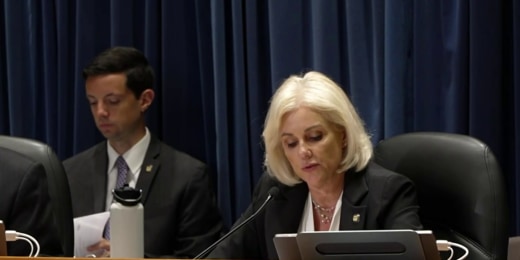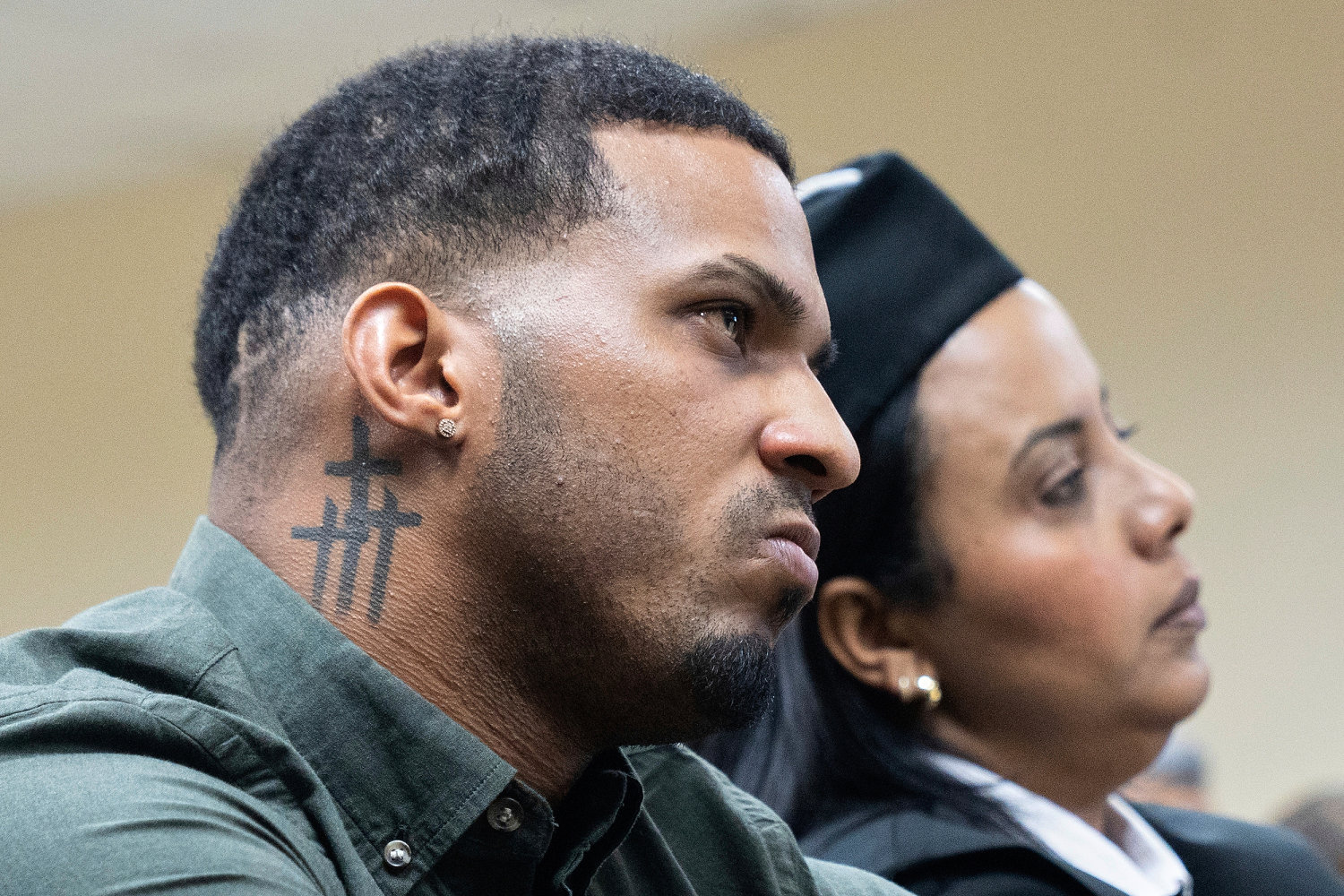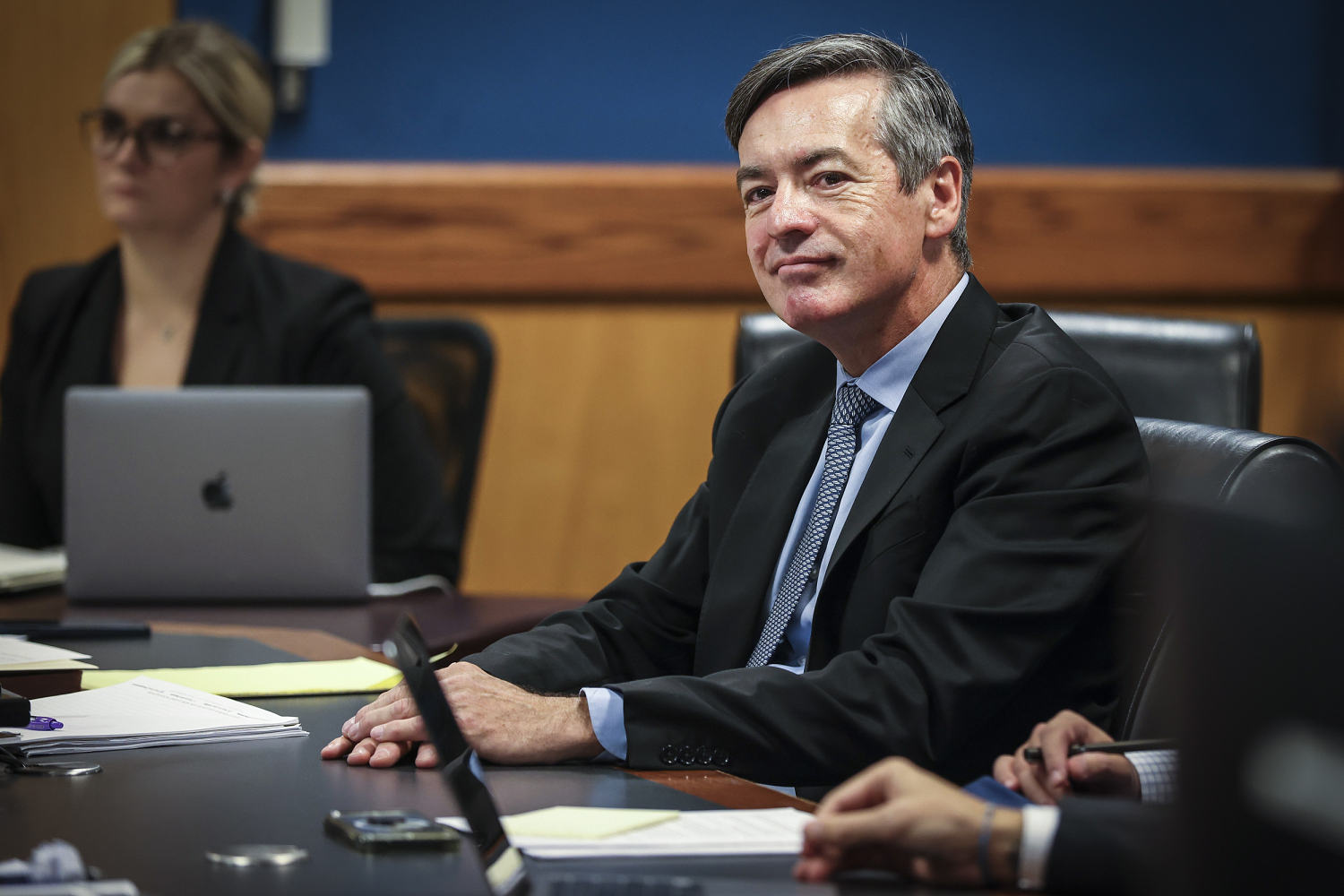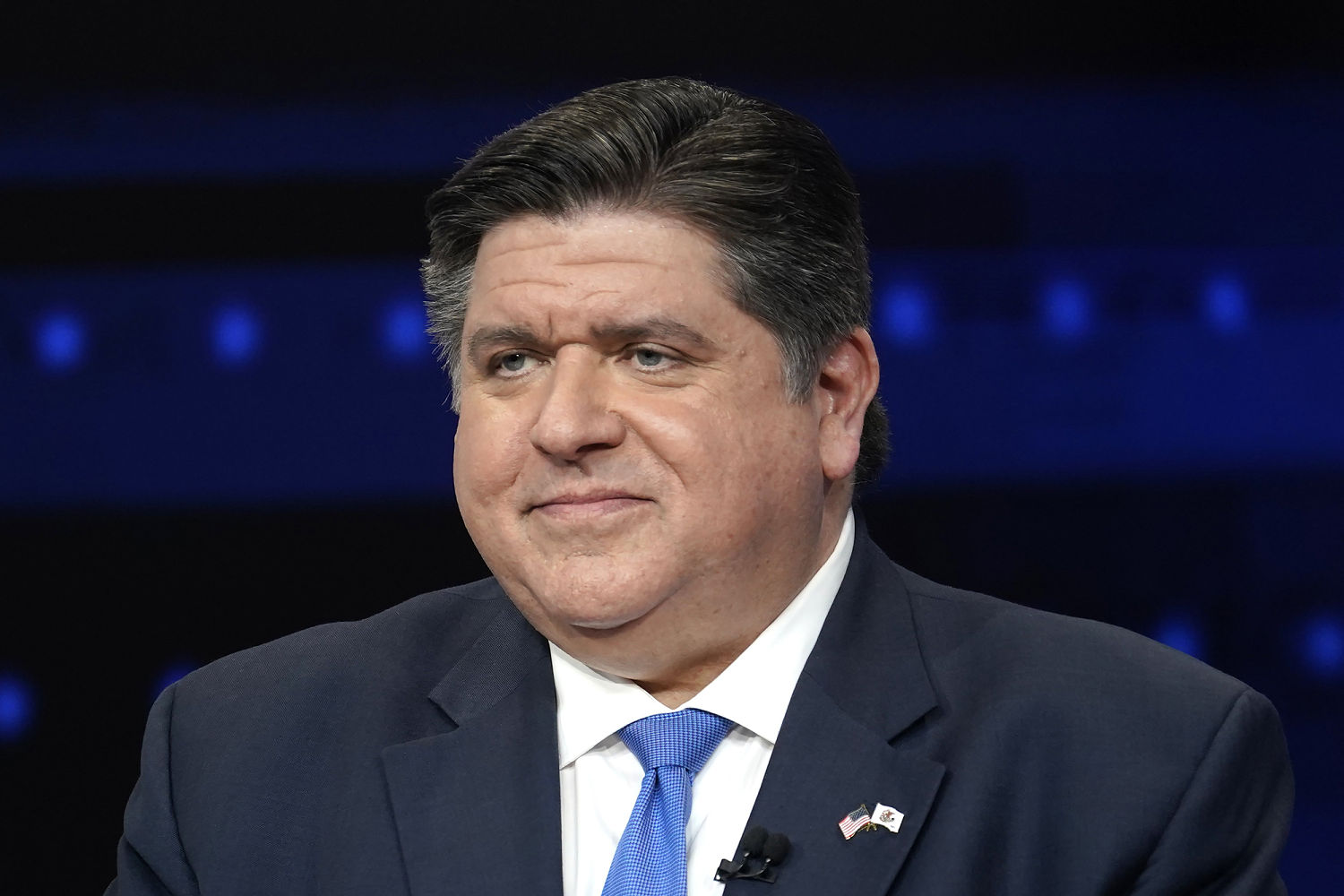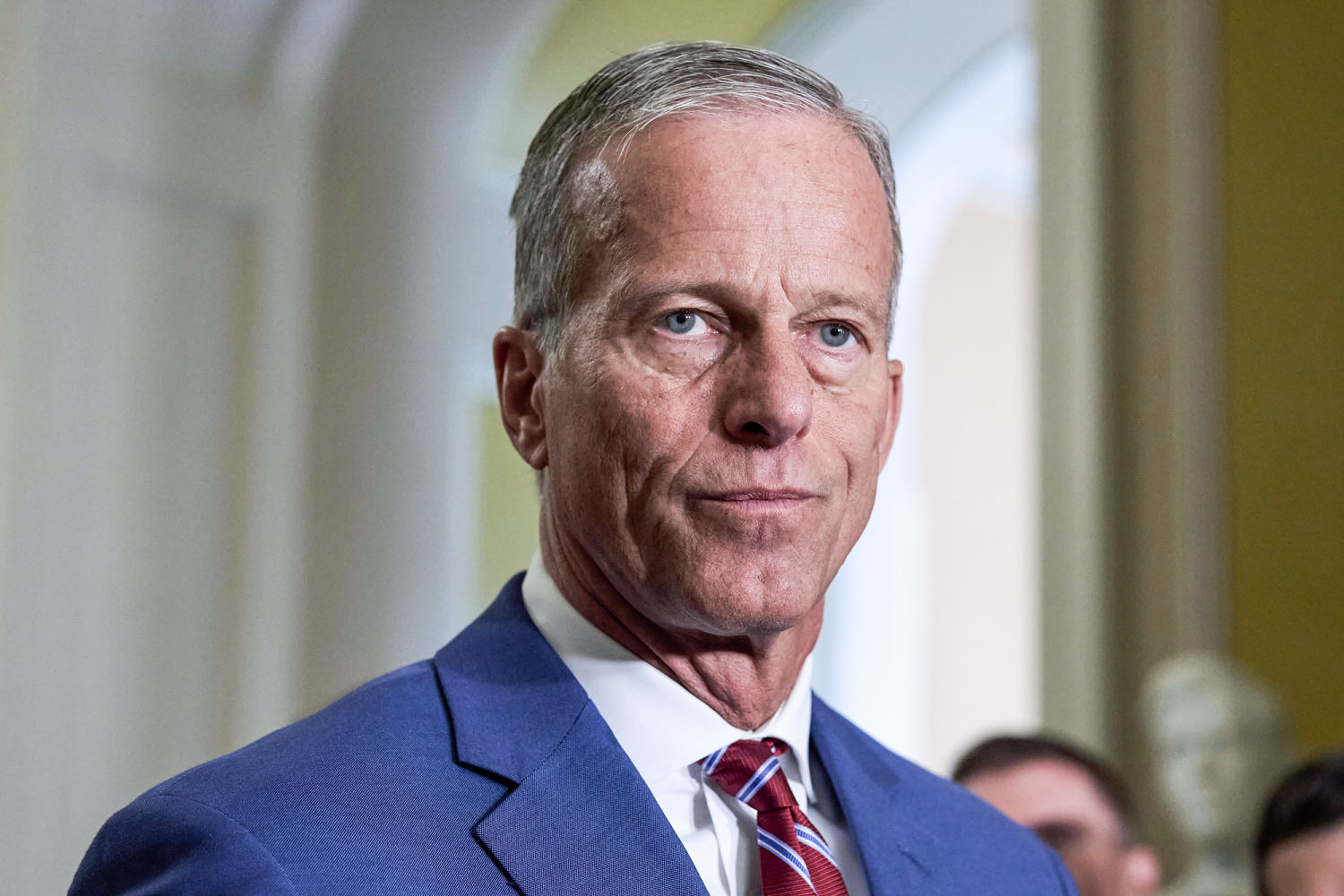WASHINGTON — Republicans suffered a blow Thursday after the Senate referee ruled that a series of health care cuts and savings in their sweeping domestic policy bill are ineligible for the party-line path they’re using to get around the chamber’s 60-vote threshold.
Senate parliamentarian Elizabeth MacDonough, who adjudicates procedural disputes between the two parties, has disqualified several provisions, including Medicaid rules prohibiting funds without verification of immigration status, reimbursement changes to contracts with pharmacy benefit managers (PBMs), provider tax restrictions aimed at saving federal dollars, and new limitations surrounding eligibility for Affordable Care Act funding.
The disqualified provisions total between $200 billion and $300 billion in savings over a decade, said Matthew Fiedler, an expert in health care policy and economics at the Brookings Institution.
That’s a problem for Republicans, who are aiming to pass the “One Big Beautiful Bill” for President Donald Trump’s agenda through the Senate in the coming days. The House-passed version of the legislation was already projected to add $2.4 trillion to the national debt over the next 10 years, and additional red ink could make Republicans even more nervous about voting for the final product.
“Everything is challenging, but they’re all speed bumps,” Senate Majority Leader John Thune, R-S.D., told reporters on Thursday. “And we have contingency plans — Plan B, and Plan C, we’ll continue to litigate it.”
Thune also admitted that the goal of starting votes on the bill Friday was “still an open question.” Republican leaders are hoping to send the legislation to Trump’s desk by July 4.
But while the rulings could set back the timing of Senate votes on the bill, Republican aides maintained that they aren’t fatal to the overall bill. In some cases, they indicated they will return to the drawing board and reword the problematic provisions to comply with budget limitations, most notably on the Medicaid provider tax. In other cases, they will accept the outcome of the revoked provisions, which is a normal part of these party-line bills.
Republicans are using the “budget reconciliation” process so they can pass the bill in the Senate with a simple majority, cutting Democrats out of the process and avoiding a filibuster. But only certain types of bills are eligible for this process.
And it’s not all bad news for Republicans from the parliamentarian: the new work requirements for able-bodied adults to access Medicaid were deemed compliant with Senate rules. Those provided the largest share of the health care spending cuts in the legislation.
Democrats said they were relieved by the ruling on the provider tax, a provision that some members of both parties worry will create pain for hospitals.
“The provider tax is devastating to our hospitals, particularly our rural hospitals, and so I’m glad it’s gone,” Senate Minority Leader Chuck Schumer, D-NY, told reporters. “But we tell the Republicans, and for the sake of our health care system, don’t come up with something just as bad or worse.”
The decisions by MacDonough add to a lingering list of disputes that Republicans must resolve. The fate of Medicaid continues to be a thorny subject for many GOP lawmakers. House conservatives like Reps. Andy Harris, R-Md., and Chip Roy, R-Texas, are threatening to torpedo the revised bill for softening the House’s clean energy funding cuts. And an expansion of the cap on state and local tax deduction, or “SALT,” remains a red line for blue-state House Republicans, while GOP senators don’t care for it.
Some conservatives lashed out at MacDonough, calling for her to either be overruled by senators or fired by Thune.
“The WOKE Senate Parliamentarian, who was appointed by Harry Reid and advised Al Gore, just STRUCK DOWN a provision BANNING illegals from stealing Medicaid from American citizens,” Sen. Tommy Tuberville, R-Ala., wrote on X. “This is a perfect example of why Americans hate THE SWAMP.”
“THE SENATE PARLIAMENTARIAN SHOULD BE FIRED ASAP,” he said.
MacDonough was appointed by then-Senate Majority Leader Harry Reid, D-Nev., in 2012, and is well-respected by leaders on both sides of the aisle. But Sen. Roger Marshall, R-Kansas, also said MacDonough needs to go and called for term limits for parliamentarians.
“She’s been here since 2012; she has a lot of power,” Marshall told reporters. “I don’t think anyone should stay here that long and have power where she doesn’t answer to anybody.”
Thune wouldn’t directly answer if he was open to firing her. He suggested Republicans knew the parliamentarian could rule that some provisions in their bill didn’t comply with Senate reconciliation rules.
“We’re pushing the edge of the envelope, trying to get as much done as we can,” Thune said.
Thune and a handful of other GOP senators — including Sens. Lindsey Graham of South Carolina, and Bill Cassidy and John Kennedy, both of Louisiana — said they oppose overruling MacDonough, meaning there are currently not the votes to do so given the GOP’s narrow 53-47 majority.
And Sen. Susan Collins, R-Maine, the chair of the Appropriations Committee, pushed back against Tuberville and others Republicans’ calls to oust MacDonough. The parliamentarian has rankled both parties in the past: In 2021, she ruled against Democrats’ provision hiking the minimum wage to $15 in then-President Joe Biden’s Covid relief package.
“I totally disagree” that the parliamentarian should be fired, Collins told reporters. “What comes around goes around when it comes to the parliamentarian. She may rule a way you like one day, the way you don’t the next. She has a job to do.”
Meanwhile, Democrats say they will keep challenging the provisions in the legislation under Senate rules, depicting the cuts as a way to pay for “tax breaks for billionaires.”
“Democrats are continuing to make the case against every provision in this Big, Beautiful Betrayal of a bill that violates Senate rules and hurts families and workers,” said Sen. Jeff Merkley, D-Ore., the ranking member of the Budget Committee.




















